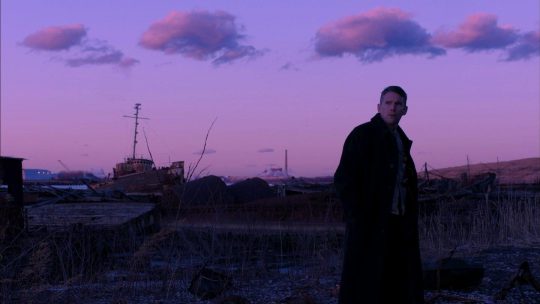There’s a lot to process in Paul Schrader’s latest film, “First Reformed.” The first half of the film sets up as a powerful, even brilliant, study of spiritual desolation and the cross-currents of modern idolatry and traditional religion. It is possible to sympathize with the protagonist, even as Rev. Ernst Toller’s desperation spirals deeper into darkness.
The plot revolves around the recurring question: Can God forgive us? That is, can God forgive us for our myriad sins of omission and commission?
Ethan Hawke’s performance is captivating. Much of the power of “First Reformed” is found in its engagement with modern forms of idolatrous syncretism, the conflation of Christianity with paganism and worldly ideology. Perhaps the best treatment of the two great alternative “religions” is by Robert H. Nelson, who describes economics and environmentalism as secular forms of faith. For Nelson, secular faith in economics is the analogue to Calvinism, while secular environmentalism, with its pseudo-sacramental view of nature, corresponds to Catholicism. The spiritual reflections of Thomas Merton figure largely in the film, connecting Roman Catholic spirituality with Reformed identity.
Both economism and radical environmentalism are on display in “First Reformed.” Abundant Life, the church that oversees First Reformed, is described in one place as “more of a company than a church.” The common trope of an evil industrialist is embodied in Balq Industries and its leader, Edward Balq, whose cronyism seemingly corrupts both ecclesial and civil politics.
The church itself is based in the fictional Snowbridge of upstate New York. It is a church founded by Dutch, and notably Frisian, settlers. The Reformed theological casting of “First Reformed” rings true in many ways. The first church service of the film opens with a responsive reading of the first question and answer of the Heidelberg Catechism. This show’s Shrader’s Dutch Reformed roots, as “First Reformed” takes its inspiration both from the everyday piety of Reformed Christians and the shallowness of much religiosity, as well as real-world events, such as the case of Wiebo Ludwig.
In “First Reformed” we see the toxic mess that results from combining Christianity with worldly ideology. We get glimpses of true faith here and there. But mostly what we see is religion turned into a rationalization of or justification for acting out of all-too-human despair. Just over halfway through, the film takes a new age turn, which emphasizes the deformation of Christian faith into a sub-Christian syncretism. As Nelson puts it, both economism and environmentalism are forms of scientism: “It has been characteristic of the entire modern age—from nineteenth-century Marxism to deep ecology today—that powerful religious beliefs, in most cases derived from Jewish and Christian sources, have been translated into a new positivist language of science.”
As in the days of Noah, in “First Reformed” we see what a world without God, or rather one consumed with various forms of idolatry, might look like. It’s not a pretty picture.

